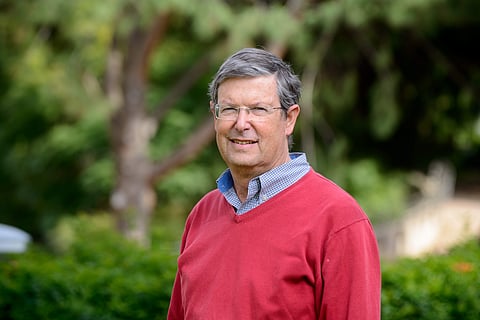

For students who picked the Science stream in school, there are two options they can major in — Medicine or Engineering — or that's what they're led to believe. But there are many more options that students hardly know about related to the serious problems Earth faces and possible solutions. One such option is to take up research in the Department of Earth and Planetary Sciences at the Weizmann Institute of Science in Israel. Advocating for the course and the research as well, Professor Dan Yakir, who has been working there since 1991, says, "The disciplines and topics related to Earth and the Universe are ultimately integrated as a means to understand and predict local, regional and global changes. Meanwhile, issues related to climate change are becoming more acute and important for society, more experts that understand the scientific basis will be needed in the public sector, insurance sector and most of all, in governments at the local and national scale. There is also an increasing need for researchers in this area. And students have to explore various options instead of limiting themselves to one of two courses." Excerpts from an interesting interview:
1) What are the courses available for students in the Department of Earth and Planetary Sciences at Weizmann Institute of Science?
The courses available for students here include energy utilization, topics in planetary physics, environmental geochemistry, atmospheric aerosol and clouds. Apart from these, some of the other courses are carbon cycles, timescale evolution of Earth system, atmospheric and oceanic fluid dynamics.
2) What are the criteria for students to join the Weizmann Institute of Science and study about Earth, the environment and climate change?
We provide admissions to students who hold a BSc degree from an accredited local or foreign institute of higher learning or other certificate deemed equivalent by the Board of Studies in their field with a GPA of 85 (or the equivalent). The Feinberg Graduate School code for GREs is 3398 and the scores must be sent directly from the GRE testing centre. TOEFL and IELTS are the only eligibles for students whose first language is not English.
3) How many research groups have been formed and guided by you till date at Weizmann?
The research projects formed under my guidance include biosphere-atmosphere interactions, novel tracers and indicators of photosynthetic activities. Some of the other research groups are climatic and hydrological implications of land use and land cover changes, stress and extreme events effects on ecosystem functioning and carbon, water and energy exchange of semi-arid ecosystems. Till date, our work includes laboratory experiments at the leaf scale and soil patch, fieldwork in a permanent research site in a semi-arid forest and dynamic mobile lab that combines field and lab work in different locations and modelling of the ecosystem at the global scale.
4) What is an eco-physiology group and how does it function at your institute?
Ecophysiology combines the aspect of ecological research of ecosystem response to change with the study of the underlying physiological processes that require extensive measurements from the cellular to the canopy scale.
5) While the US has been imposing that developing countries must take measures towards climate change, don't you think that developed countries should be equally responsible? How can governments bring change in policies towards climate change?
Governments play a diversified role in climate change. They need to come up with policies which help in the conversion to clean energy such as wind and solar. The factors which help in this conversion includes setting state-wide standards for renewable energy, changing laws and regulations that make it difficult for solar and wind generators to connect to the grid and maintain aggressive vehicle emissions standards and cutting subsidies to fossil fuel industries. Since these measures are not guaranteed to be sufficiently effective or fast, the government must also develop a measure for adaptation to climate change.
6) According to your studies, how does crop cultivation or vegetation affect climate change?
The straightforward formula is that the planting of forests removes greenhouse gases and converts carbon dioxide to plant and soil matter. During my nineteen-year study in the Yatir Forest, I found that forests in dry regions can directly absorb and retain heat. Meanwhile, there are some conditions where the heat-retaining effects of the forests are so strong that they counteract the effects of lowering CO2 gases in the atmosphere. I also feel that although the numbers vary with location and conditions, we now know it can take decades of forest growth before the cooling CO2 sequestration can overtake these opposing warming processes.
7) What kind of trees should be planted to bring down global warming or enhance cloud formation for better rains especially in countries like India?
Our work is focused on pine and oak, but other trees like yellow poplar, teak and eucalyptus help in reducing global warming. Our models indicate that in large scale and in the right geographical locations, the forest can also enhance cloud formation for better rainfall in countries like India.
8) Any suggestions to help people take baby steps in reducing global warming?
There are many simple steps that, if we all take around the world, can have a significant effect: Saving on food, water and energy, enhancing recycling, shifting to a vegetarian diet, reducing the use of plastic.
